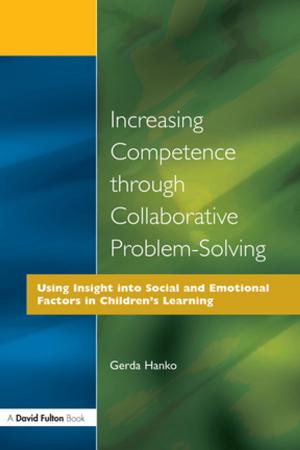Creating A Memory of Causal Relationships
An Integration of Empirical and Explanation-based Learning Methods
Nonfiction, Health & Well Being, Psychology, Cognitive Psychology| Author: | Michael J. Pazzani | ISBN: | 9781134992324 |
| Publisher: | Taylor and Francis | Publication: | March 7, 2013 |
| Imprint: | Psychology Press | Language: | English |
| Author: | Michael J. Pazzani |
| ISBN: | 9781134992324 |
| Publisher: | Taylor and Francis |
| Publication: | March 7, 2013 |
| Imprint: | Psychology Press |
| Language: | English |
This book presents a theory of learning new causal relationships by making use of perceived regularities in the environment, general knowledge of causality, and existing causal knowledge. Integrating ideas from the psychology of causation and machine learning, the author introduces a new learning procedure called theory-driven learning that uses abstract knowledge of causality to guide the induction process.
Known as OCCAM, the system uses theory-driven learning when new experiences conform to common patterns of causal relationships, empirical learning to learn from novel experiences, and explanation-based learning when there is sufficient existing knowledge to explain why a new outcome occurred. Together these learning methods construct a hierarchical organized memory of causal relationships. As such, OCCAM is the first learning system with the ability to acquire, via empirical learning, the background knowledge required for explanation-based learning.
Please note: This program runs on common lisp.
This book presents a theory of learning new causal relationships by making use of perceived regularities in the environment, general knowledge of causality, and existing causal knowledge. Integrating ideas from the psychology of causation and machine learning, the author introduces a new learning procedure called theory-driven learning that uses abstract knowledge of causality to guide the induction process.
Known as OCCAM, the system uses theory-driven learning when new experiences conform to common patterns of causal relationships, empirical learning to learn from novel experiences, and explanation-based learning when there is sufficient existing knowledge to explain why a new outcome occurred. Together these learning methods construct a hierarchical organized memory of causal relationships. As such, OCCAM is the first learning system with the ability to acquire, via empirical learning, the background knowledge required for explanation-based learning.
Please note: This program runs on common lisp.















